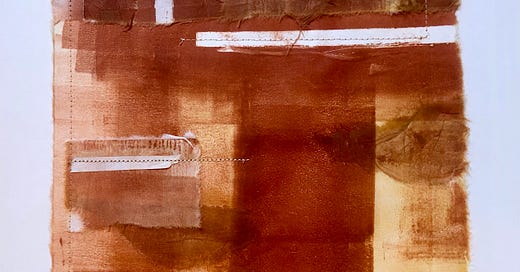One day years ago I found One Long River of Song: Notes on Wonder, a collection of essays by Brian Doyle, on my doorstep.
The collection had been assembled by Doyle’s friends in the months after the great catholic writer was diagnosed in late 2016 with brain cancer; he would succumb to the terrible disease the following spring. It begins with a creature of the air, Doyle’s famous hummingbird—“Consider the hummingbird for a long moment.”—and ends with a creature of the sea—“Remember—otters. Otters rule. And so: amen.”
In between, Doyle celebrates postal workers and those without homes, embarrassment and mother-in-laws, basketball hoops and “Lines Hatched on the Back Porch of Eudora Welty’s House in Jackson, Mississippi”—each essay or poem rounding up on wonder.
Doyle channels the voices of others into his prose, steers his language toward affection, hopes his readers will take his advice to live a bit more tenderly, to love without fear of sentimentality. In his poem “Joey” Doyle recounts getting sick, “a thorough and major sick,” a condition his kids called The Thing:
… But there’s only one story that I want to tell you:
Every morning my son got up early to help me
Put my socks on. I would sit on the back stairs
In the dark and he would wrestle my socks on
And neither of us would say any words and I
Still can’t thinking of anything cooler than that.
I have racked my brains and considered
All the possibilities of love and I still
Return to that boy and those socks,
No matter what happens to me,
That happened to me.
One Long River of Song is, Brian’s widow, Mary, writes:
… living proof that we are wise to hold compassion as our Lodestar and to believe that energy never ever is lost and that Brian James Patrick Doyle stirred up so much love in this world that his companions gave of themselves to gather his far-flung brilliant essays from the corners of the world and tuck them in between these covers so you might now know him more as we do, with his capacious humble heart, his soaring spirited stupendous mind, his tender, copious humor, his feisty unfailing faith.
Toward the end of this magnificent collection is an essay called “Billy Blake’s Trial.” It’s the longest piece in the entire book, an essay that took Doyle, he says, a year to write and many more years to research. The narrative builds toward William Blake’s final days, and, through Doyle, we see them. Blake is dying with a pencil in his hand. Blake is dying sketching his beloved wife’s face. Blake is dying singing. Blake is seeing angels. Then Blake is gone and Doyle wants to know much more, but he can arrive at no more complete an ending:
I have scoured many books for accounts of Blake’s last day. I’m not sure why. We all die in the end, and the grace or gracelessness with which we leave is meat only for the morbid. Yet I want to know how Billy stepped into the next room. I want to know how firmly he held his opinions in the face of annihilation. I want to know him in the last moments that he wore a body like mine, in the last moments that he saw crows, spoons, apples, angels. I want to hear his heart.
I want to hear his heart.
Maybe there’s nothing more lasting that writers can do than to make others near or far, now or later, yearn to hear their hearts.
Maybe that’s the meaning of meaning.
**************
Tomorrow Will Bring Sunday’s News: A Philadelphia Story, my first novel for adults, received a Booklist star and is available wherever books are sold.
My first book on the writing of memoir, Handling the Truth, won a Books for a Better Life Award shortly after its publication in 2013. I’ve continued to write books about the making of true stories ever since, working with my husband to create workbooks, prompt-rich books, and suggested approaches to the page. A guide to those resources, along with a link to my essay collection You Are Not Vanished Here (illustrated by William Sulit) can be found here.
Join me for a CraftTalk on sentence making, May 21, registration here.
Join me for a Cleaver master class, “Transcending the Tumult: Write Right Now,” July 27, registration here.
Join me for an in-person writing workshop in September, through Maine Media.





Oh, my heavens! To hear Brian Doyle again through your words is such a gift. Thank you. I am moved beyond words, and grateful all over again for your presence in this world, for your writing, for that gorgeous collage at the top of the post.... All I can do is repeat, thank you. And blessings.
Helpin Dad put on his socks is compassionate, sure, made chore sacred by a child's innocent allegience to love's daily routines.